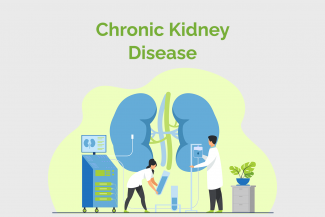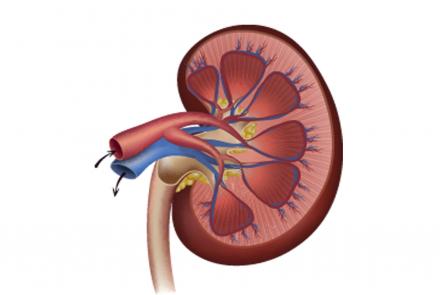Chronic kidney disease (CKD) is a worldwide public health problem.
lthough the exact reasons for the growth of CKD are unknown, changes in the demographics of the population, differences in disease burden among racial groups, and under-recognition of earlier stages of CKD and of risk factors for CKD may partially explain this growth
It is also known as Chronic Renal Disease.

Tests for Chronic kidney disease
In many CKD patients, previous renal disease or other underlying diseases are already known. A small number present with CKD of unknown cause.
- Assessment of GFR is the best test to measure the level of kidney function and determine the stage of kidney disease.
- Urinary tract ultrasound and abdominal ultrasound, in which the size of the kidneys is measured. Kidneys with CKD are usually smaller (< 9 cm) than normal kidneys, with notable exceptions such as in diabetic nephropathy and polycystic (multiple cysts) kidney disease.
- Gradual rise in serum creatinine (over several months or years) and haemogram or complete blood count (used for screening disorders such as anaemia, infection and other diseases).
- Additional tests may include nuclear medicine MAG3 scan to confirm blood flows and establish the differential function between the two kidneys.
- DMSA (Dimercaptosuccinicacid) scans are used to measure, for example, the proportionate function of each kidney.
- Kidney biopsy, which is done in some cases to check for a specific type of kidney disease, to see how much kidney damage has occurred and help plan treatment. To do a biopsy, the doctor removes small pieces of kidney tissue and looks at them under a microscope.
Changed
30/Mar/2025
Condition











